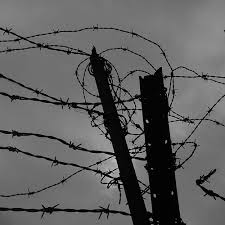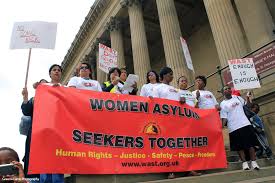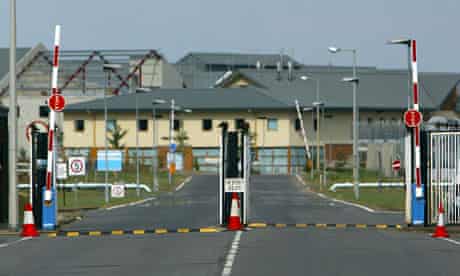
Subjected to the trials of Job, Marie Therese Njila Nana has survived with dignity, and is rewarded, by the United Kingdom, with prison and worse.
Nana is from Cameroon. In her area, her family was fairly prominent. When Marie Therese Nana converted to Pentecostalism, her family took, bound her, tortured and beat her. She fled to another part of the country, joined a local Pentecostal Church, and tried to begin a new life.
She lived in that town for ten years. Then the Church decided she must marry a Church elder. Nana refused, and was forced to move again, to avoid violence.
She met a man from another tribe, whom she married. Her family discovered this and sent nine masked family members to her house. They beat her.
Her husband left for Germany, for work. Threats, and worse, from Church and family escalated. Marie Therese Nana tried to reconcile with her family. She returned home to meet with her parents, or so she thought. Her family held her for days, beating her senseless and humiliating and degrading her, all in an attempt to `purify’ her. Then they took her to the police, where she was further beaten.
Marie Therese Njila Nana then fled, to England, where she applied for asylum. Which was denied. The Home Office claims that Marie Therese Njila Nana can return safely to Cameroon, because there are `support services’ available. Not the police, notoriously corrupt and violent and beyond reproach. Her family has proven its capacity to reach her anywhere in the country. The Pentecostal Church as well is all over the place. And her name is known. But somehow the United Kingdom Border Agency has decided that Marie Therese Njila Nana is not a true candidate for asylum.
And so they sent her to Yarl’s Wood, where she has been for the last nine months. Nana describes her experience in Yarl’s Wood as torture. According to doctors, she is clearly suffering from trauma, and has received no medical attention. To the contrary, guards have taunted and harassed her.
This is not surprising from an agency that commonly and blithely uses forces on pregnant prisoners. This is not surprising from an agency that, in report after report, is found to treat prisoners with abuse, violence, and viciousness. Prisoner after prisoner reports that the staff treats them “like dogs”, like animals. Marie Therese Nana puts it succinctly: “English people need to know that there are concentration camps in their country where aliens are tortured and oppressed.”
And now, the United Kingdom plans to send Marie Therese Njila Nana back to Cameroon. What’s the reward an African woman gets for having survived violence after violence after violence? More violence.
Marie Therese Njila Nana asks, “Am I a HUMAN BEING? I ran from my country to save my life and I just seek asylum. After destroying me mentally more than 8 months now they plot to send me back to my killers.” But the real question is this, “Are we human beings?” Only concerted and collective action to stop the flight, and all the flights, will do, if we want to answer, “Yes. Yes, we are human beings.”
(Photo Credit: Muse / bensmawfield)








